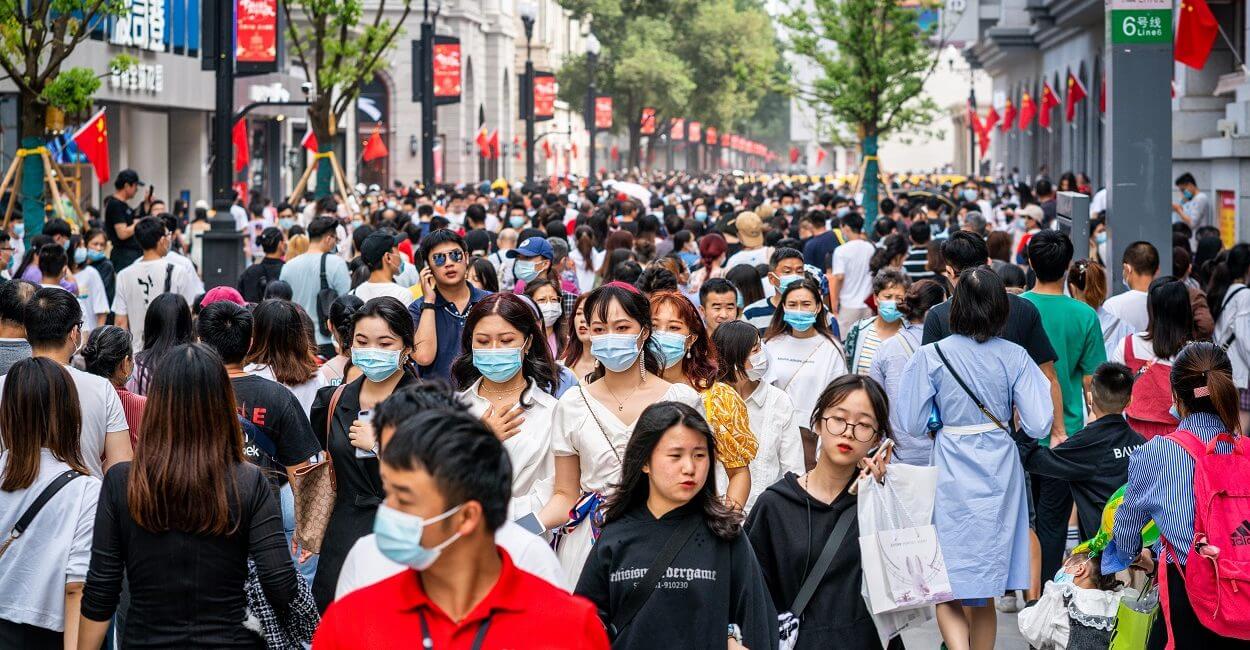Globally 2022 has been a difficult economic period to navigate with so many headwinds prevailing. China had additional restrictions to manage with the implementation of its zero-Covid policies. Businesses became even more risk averse, most opting for a cash conservation approach to preserve much needed liquidity. Covid policies impacted staff, supply chains, logistics, manufacturing, productivity and ultimately the Chinese economy.
MSA has a comprehensive understanding of the Chinese trade and business landscape, as such we have prepared some of our thoughts on an overview of 2023 with you.

Doing Business in China
If you want to learn more about Doing Business in China, you’ve come to...
Read more2022 Overview: Subdued Economic Activity
China’s GDP growth was originally forecast at 5% for 2022, but this was subsequently revised to less than 4% by many economists. The fourth quarter of 2022 should see an uptick in the economy, although some sectors will continue to feel the lingering negative effects for the foreseeable future.
As China re-emerges from 3 years of Covid isolation it is expected that economic activity will be marginally scaled up. Due to high levels of Covid expected for the 1st half of the year, a modest recovery is predicted by year end. A trend throughout South-East Asia and many other parts of the world has been a dip in the economic activity, followed by gradual and moderate upward growth movement.
China’s recovery
With China currently experiencing high levels of Covid transmission, economists predict that the year will be divided into 2 distinct stages: A slow first 6 months with increased activity being seen during the 2nd half 2023.
The countries institutions, businesses and individuals continue to navigate their way through a new era, where they must remain agile and deal with new challenges that come with the re-opening. While China opening up is coming at a much-welcomed time by the global economy, the Chinese economy is still expected to see a downturn due to being not fully prepared to deal with Covid.
Sectors that have stagnated over the past 3 years, such as the travel and tourism industry will need to be managed carefully to mitigate health risks. Additionally for specific sectors new regulations will need to be monitored.
The first few months of 2023 will be a period in which businesses will be expected to remain agile and adapt fast, while policies may change and Covid will be affecting the operational activities.
While Consumer spending in China had already slowed significantly in the 2nd half of 2022, it is expected to slow even further in the opening months of 2023, particularly with offline and brick and mortar businesses. This will primarily be due to the rapid spread of Covid outbreaks expected all across the country.
An Encouraging Outlook
With China officially re-opening and the rising number of Covid cases, there is an initial fear of the effects on production and consumption. However, the indication by economists is that local consumption is expected to rebound strongly as early as the 2nd quarter of the year, with some predicting more than 5% GDP growth for 2023.
Additionally, supply chains will start to operate optimally again, but this growth will be softened by the fact that it will take time to get to prior production and quality levels; as well as managing new workplace policies. The logistics sector is also expected to bounce back this year as global demand has increased due to the current state of the global economy.
Domestic policies from government have prioritized certain sectors and technologies, particularly high-tech manufacturing and renewable energy, which will be supported strongly by government and push forward economic development in these sectors. With strong backing of domestic policy, the government is bolstering and supporting local manufacturing and production.
The Real Estate Market
Within the real estate sector, the pandemic and lockdown had significant impact on the contraction and pressure felt by developers and contractors, with a number of high-profile developers defaulting on debt. Experts are continuing to observe how the real estate market, which makes up almost 30% of China’s GDP, will be addressed over the next few months.
Chinese policymakers have given some respite as seen by the cutting of mortgage rates and establishing funds to support troubled developers. Furthermore some other policies have been announced, in a 16 point plan, to ease the pressure on this segment of the economy.
Challenges in re-opening
Some of the notable challenges businesses will face operating in China in 2023 include:
Chinese New Year – the Lunar Holidays
The Lunar New Year, which starts on January 22 in 2023, can pose a challenge for businesses in Q1. The huge ‘migration’ of the population, as people travel to family and traditional homesteads, may cause the rapid spread of variants of Covid throughout the country. Risks around travel restrictions may impact people returning to work, meaning labor shortages and supply chain disruptions.
Uneven Financial Stress Regionally
Circumstances have led to uneven financial stress over various regions in China.
Some local governments faced significant restrictive challenges due to limited budgets for managing the health of their regional population. This means that some regions may be more effective in their handling of the Covid outbreaks than others.
Slowing Demand for Goods
The industrial sector experienced the adverse reaction of disruption to production of items and their distribution (often with increased costs). This slowing down of external demands for goods could put pressure on local goods pricing.
Building Confidence
Consumer confidence has taken a significant knock over the past year. Research shows that Chinese consumer confidence is linked to the health of the property sector, the cost of food and living expenses and the stock market. While confidence is expected to increase gradually as 2023 unfolds and the various sectors stabilize, businesses should be prepared for consumers to remain sceptical especially in the 1st half of the year.
Final thoughts
With economists prediciting more than 5% growth for the year ahead, this means that there is abundant economic opportunities for businesses to succeed in China.
There has also been some indications from Chinese leadership that there may be more business-friendly policies in the pipeline. With this comes sentiment within various markets that China is well on the way to sound economic recovery. As concerns over a global recession increase, the re-opening of China has come at a good time.
Your Business in China
At MSA, we know that doing business in China can seem challenging. As such our experts are well equipped to deal with any queries your business may have. For more than a decade we have supported foreign enterprises across China with Accounting, Tax, and business set-up services.
Get in touch with us right away and start enjoying the benefits of having an experienced guide on your business journey to success in 2023.




